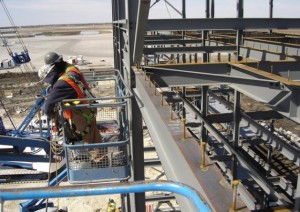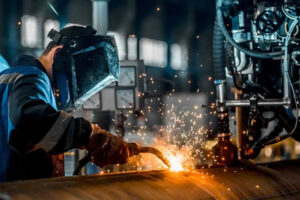What Distinguishes QA from QC in the Construction Industry?

Always producing outstanding work without cutting corners yields quality. The requirement for quality management is created by the presence of this quality throughout the project life cycle. Additionally, it is further divided into Quality Control and Quality Assurance in order to streamline the process of this quality management. For a construction project to provide a […]
What Advantages Do Certified Welding Inspectors Offer?

Metal fabricators can benefit greatly from and gain great value from Certified Weld Inspectors. Every business hiring the fabricators who bring them on board benefits much from their presence. As you may already be aware, one of the most intricate services provided by the metal fabrication sector is welding. Every welding project’s outcome is greatly […]